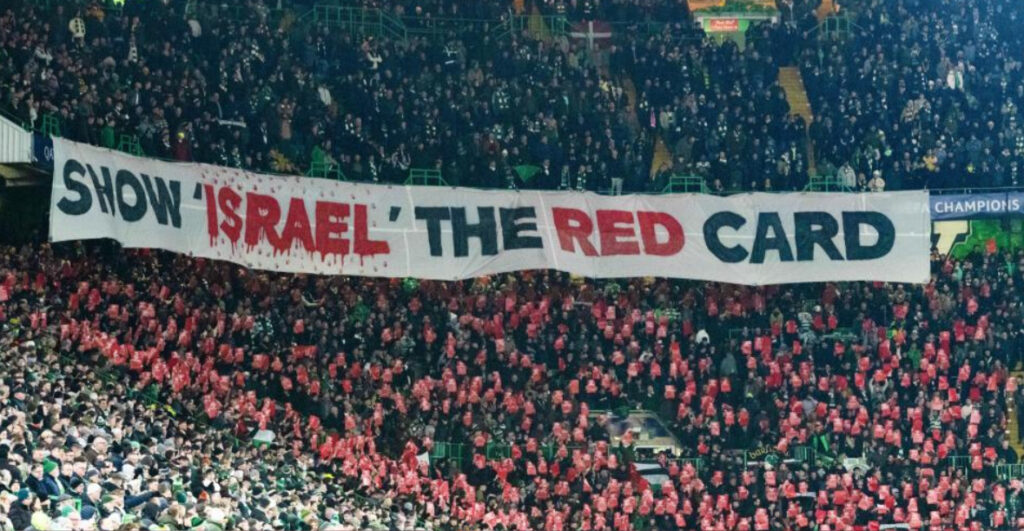A prominent Palestinian advocacy group has penned a letter to Celtic FC, urging the club’s board to support its fans’ advocacy for Gaza.
Celtic supporters, notably the Green Brigade ultras, have consistently shown solidarity with the people of Gaza, especially following the full-scale Israeli invasion triggered by the attacks on October 7.
Despite the club acknowledging the personal views of its fans, it has requested that “banners, flags and symbols associated with the conflict and the countries involved are not displayed at Celtic Park.”
In response, fans have been brandishing red cards, demanding the exclusion of the nation from international sporting events, drawing parallels with actions taken against Russia post-Ukraine invasion and South Africa during apartheid.
An ongoing case at the International Court of Justice sees South Africa accusing Israel of genocide against Palestinians, with a decision expected in the distant future.
Moreover, arrest warrants have been issued for Israeli Prime Minister Benjamin Netanyahu and former defence minister Yoav Gallant, citing alleged war crimes.
The protest has not only spread across Europe but globally, with some critics labeling the movement as antisemitic. Advocates clarify that the focus is on the Israeli state, not the Jewish community.
Both Gaza and the West Bank are recognized as occupied territories by the United Nations and the UK government.
In their open letter, the Gaza Genocide Emergency Committee (GGEC) argued that rather than suppressing such expressions, Celtic should view them as significant humanitarian statements.
The supporters, by waving Palestinian flags and banners, are championing oppressed populations and echoing the club’s foundational values.
The letter highlighted that Celtic, as a major cultural entity, has a crucial role in promoting these values and serving as a model for other clubs.
The enduring connection between Celtic fans and the Palestinian cause is a testament to the global support for Palestinian rights and justice, which the board should acknowledge and promote.
Additionally, the GGEC called attention to the Palestinian club Lajee Celtic, inspired by the solidarity shown by Celtic fans. The supporters’ fundraising efforts for the Aida refugee camp have become a celebrated example of fan activism.
The letter also criticized the continued participation of Israeli clubs in UEFA and FIFA competitions, pointing out the perceived double standards compared to the exclusion of Russian teams.
It emphasized the influential role of sports boycotts and public demonstrations in combating apartheid in South Africa and urged Celtic fans to continue their efforts to challenge Israel’s policies.
GGEC’s Red Card team has led numerous successful boycotts against Israeli sports and cultural entities and remains committed to supporting Celtic fans in their moral solidarity.
The organization expressed a desire to meet with the Celtic board to further discuss these issues.


